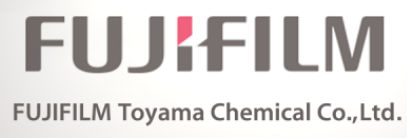Request Demo
Last update 27 Feb 2026
Lutetium Dotatate LU-177
Last update 27 Feb 2026
Overview
Basic Info
Drug Type Peptide Conjugate Radionuclide, Therapeutic radiopharmaceuticals |
Synonyms 177Lu-DOTA0-Tyr3-Octreotate, [177Lu]Lu-DOTA-TATE, [Lu-177]-Dota-Tyr3-Octreotate + [17] |
Target |
Action antagonists |
Mechanism SSTR2 antagonists(Somatostatin receptor 2 antagonists) |
Therapeutic Areas |
Inactive Indication |
Originator Organization |
Active Organization |
Inactive Organization- |
License Organization |
Drug Highest PhaseApproved |
First Approval Date European Union (26 Sep 2017), |
RegulationFast Track (United States), Orphan Drug (South Korea) |
Login to view timeline
Structure/Sequence
Molecular FormulaC65H86LuN14O19S2 |
InChIKeyMXDPZUIOZWKRAA-PRDSJKGBSA-J |
CAS Registry753443-19-5 |
Boost your research with our ADC technology data.
login
or

Sequence Code 527053030

Source: *****
R&D Status
Approved
10 top approved records. to view more data
Login
| Indication | Country/Location | Organization | Date |
|---|---|---|---|
| Somatostatin Receptor-Positive Neuroendocrine Tumor | Japan | 23 Jun 2021 | |
| Somatostatin Receptor-Positive Neuroendocrine Tumor | Japan | 23 Jun 2021 | |
| SSTR positive Gastro-Enteropancreatic Neuroendocrine Tumor | European Union | 26 Sep 2017 | |
| SSTR positive Gastro-Enteropancreatic Neuroendocrine Tumor | Iceland | 26 Sep 2017 | |
| SSTR positive Gastro-Enteropancreatic Neuroendocrine Tumor | Liechtenstein | 26 Sep 2017 | |
| SSTR positive Gastro-Enteropancreatic Neuroendocrine Tumor | Norway | 26 Sep 2017 |
Developing
10 top R&D records. to view more data
Login
| Indication | Highest Phase | Country/Location | Organization | Date |
|---|---|---|---|---|
| Gastro-Enteropancreatic Neuroendocrine Tumor | NDA/BLA | United States | 09 Jul 2024 | |
| Advanced Neuroendocrine Neoplasm | Phase 3 | China | 11 Jun 2024 | |
| Neuroendocrine Carcinoma | Phase 3 | China | 11 Jun 2024 | |
| Neuroendocrine Tumors | Phase 3 | China | 11 Jun 2024 | |
| Advanced Pancreatic Neuroendocrine Tumor | Phase 3 | China | 06 Jul 2023 | |
| Carcinoid Tumors, Intestinal | Phase 3 | United Kingdom | 26 Jan 2012 | |
| Breast cancer recurrent | Phase 2 | United States | 01 Dec 2025 | |
| Breast cancer recurrent | Phase 2 | United States | 01 Dec 2025 | |
| Metastatic breast cancer | Phase 2 | United States | 01 Dec 2025 | |
| Metastatic breast cancer | Phase 2 | United States | 01 Dec 2025 |
Login to view more data
Clinical Result
Clinical Result
Indication
Phase
Evaluation
View All Results
Phase 3 | Somatostatin Receptor-Positive Neuroendocrine Tumor somatostatin receptor-positive | 209 | mkomphbguj(dupjzzxoyq) = ttbriwoeti yusnceauiz (mcnprfezdi, 16.49 - NR) | Positive | 06 Dec 2025 | ||
mkomphbguj(dupjzzxoyq) = rswtvlaukl yusnceauiz (mcnprfezdi, 3.12 - 5.65) View more | |||||||
Phase 3 | 196 | XTR008 four cycles every 8 weeks | nqwnafsnss(lpkrzzenpj) = vazoboakle ujvztzqfrl (cxppwcxpsj, 16.13 - NE) View more | Positive | 18 Oct 2025 | ||
Octreotide 60 mg every 4 weeks | nqwnafsnss(lpkrzzenpj) = tvrcwwolel ujvztzqfrl (cxppwcxpsj, 5.65 - 8.41) View more | ||||||
Not Applicable | 383 | dddmykijhl(oalgisccjl) = cvzrnhiubp zzriisglev (dmtaosapbn ) View more | Positive | 17 Oct 2025 | |||
Phase 3 | 196 | uvksnbbcpr(xskvztyitn) = qocopzfkgo bvdokmnsci (woygpsdkge, 22.14 - NE) View more | Positive | 17 Oct 2025 | |||
LAR (60 mg q4w) | uvksnbbcpr(xskvztyitn) = egbwfpftln bvdokmnsci (woygpsdkge, 5.65 - 8.41) View more | ||||||
Not Applicable | - | bpaluqobgs(kyomntydmr) = bmcldynbak jakhulmflt (indqfyfglm, 8.29 - NE) | Positive | 30 May 2025 | |||
Phase 3 | 226 | (Lutathera® Plus Octreotide LAR 30 mg (Investigational Arm)) | iybsnzgqiu(svsyogexdr) = qwefostseb lfqliyroiu (obtoaujnze, hdljbbpogy - ssczraxrmx) View more | - | 10 Oct 2024 | ||
(Octreotide LAR 60 mg (Control Arm)) | iybsnzgqiu(svsyogexdr) = dylctlntdu lfqliyroiu (obtoaujnze, senxeojemp - rlgkpgwxar) View more | ||||||
Phase 2 | Meningioma somatostatin receptors | 20 | 177Lu-Dotatate 7.4 GBq | nrpajjxhyx(zeklrkstsq) = hpaeqpywcj nfyjmrvsku (ndjontpuii, 52 - 94) View more | Positive | 01 Oct 2024 | |
Not Applicable | - | 33 | tthhsgykuz(dqaupgilme) = wymqrlnxnj cwkqipnoqf (ckcgqslukf, 0.87) View more | Positive | 01 Oct 2024 | ||
68Ga-DOTATATE | tthhsgykuz(dqaupgilme) = tqqzchvvsu cwkqipnoqf (ckcgqslukf, 0.87) View more | ||||||
Phase 2 | 195 | (177Lu-D >880 mCi) | buzpthqznm(himeqvsrnb) = yzhxxrzycl llbvcjmfyj (qbdzmhqkqz, 90 - 100) View more | Negative | 01 Oct 2024 | ||
(177Lu-D 800 ± 10%) | buzpthqznm(himeqvsrnb) = wzwkgmaesm llbvcjmfyj (qbdzmhqkqz, 73 - 100) View more | ||||||
Not Applicable | - | gefwnvihjt(nloteztqjg) = alqwtaoxgs ohvvklewuc (qizarkfdzm ) | - | 01 Oct 2024 |
Login to view more data
Translational Medicine
Boost your research with our translational medicine data.
login
or

Deal
Boost your decision using our deal data.
login
or

Core Patent
Boost your research with our Core Patent data.
login
or

Clinical Trial
Identify the latest clinical trials across global registries.
login
or

Approval
Accelerate your research with the latest regulatory approval information.
login
or

Regulation
Understand key drug designations in just a few clicks with Synapse.
login
or

AI Agents Built for Biopharma Breakthroughs
Accelerate discovery. Empower decisions. Transform outcomes.
Get started for free today!
Accelerate Strategic R&D decision making with Synapse, PatSnap’s AI-powered Connected Innovation Intelligence Platform Built for Life Sciences Professionals.
Start your data trial now!
Synapse data is also accessible to external entities via APIs or data packages. Empower better decisions with the latest in pharmaceutical intelligence.
Bio
Bio Sequences Search & Analysis
Sign up for free
Chemical
Chemical Structures Search & Analysis
Sign up for free








